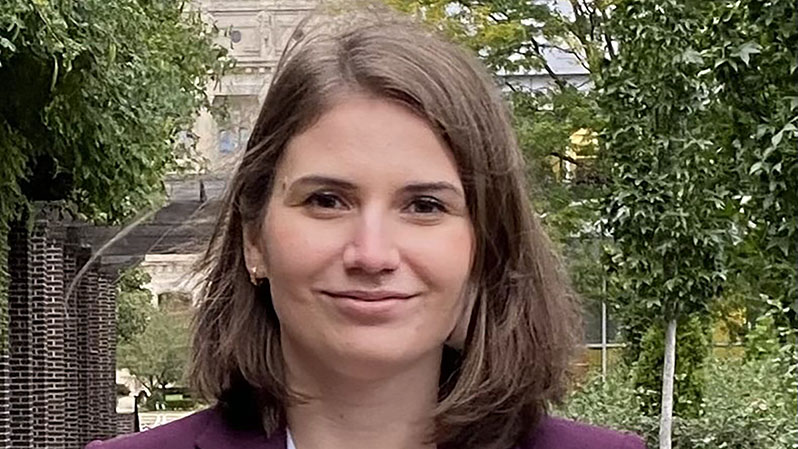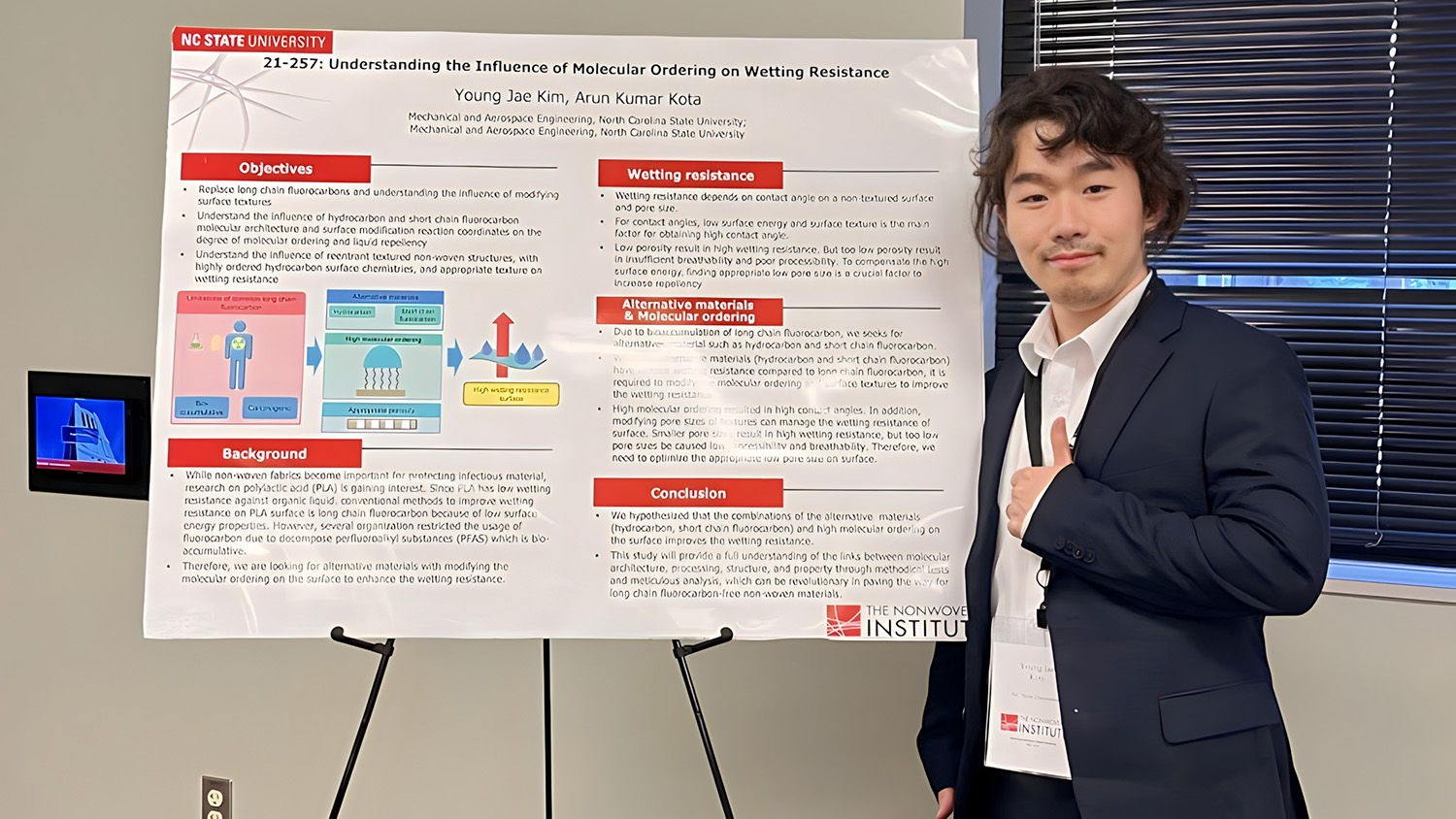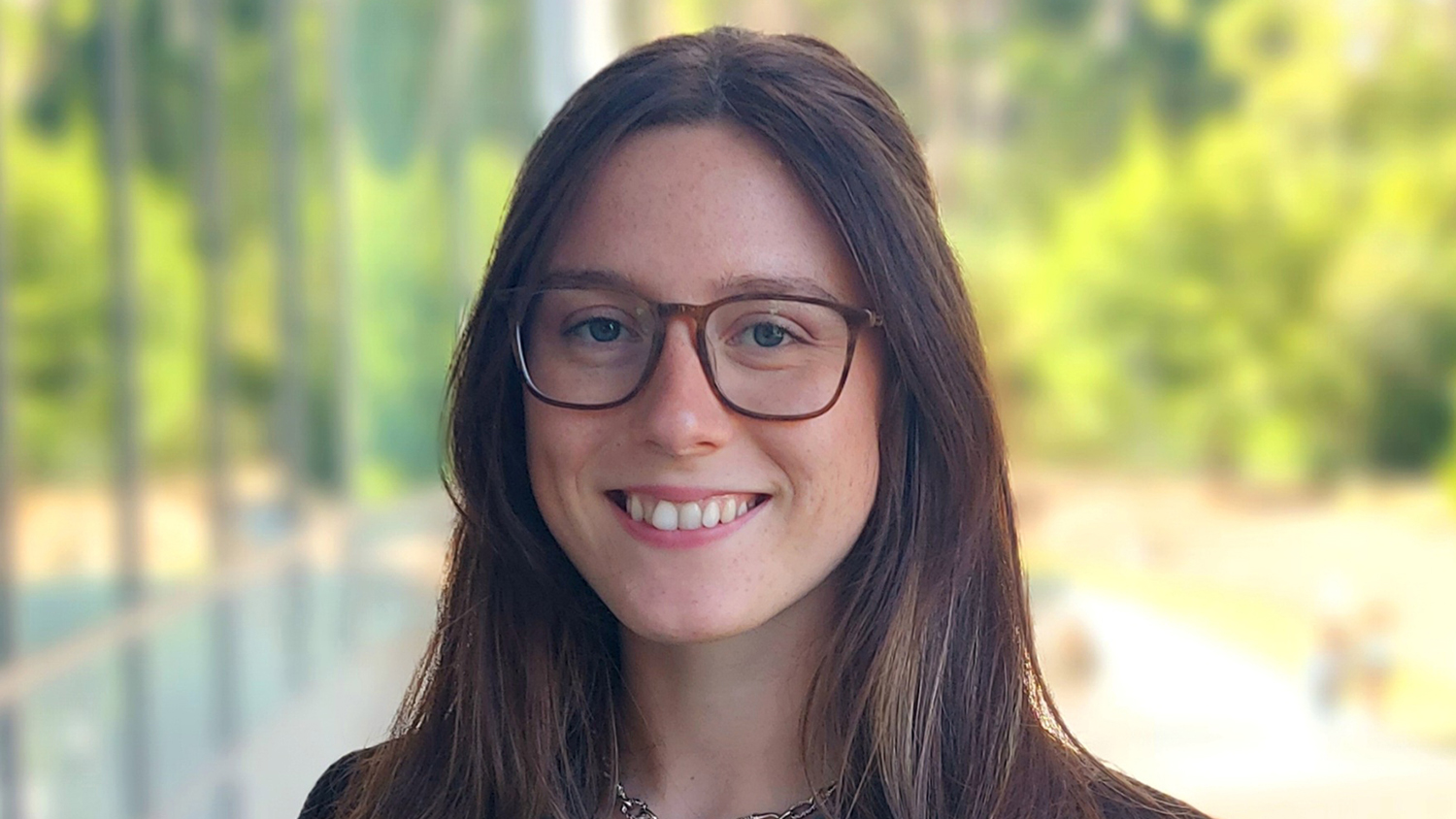Jose Alejandro Fernandez, Biodegradability of Polymers, Blends and Additives for Nonwovens
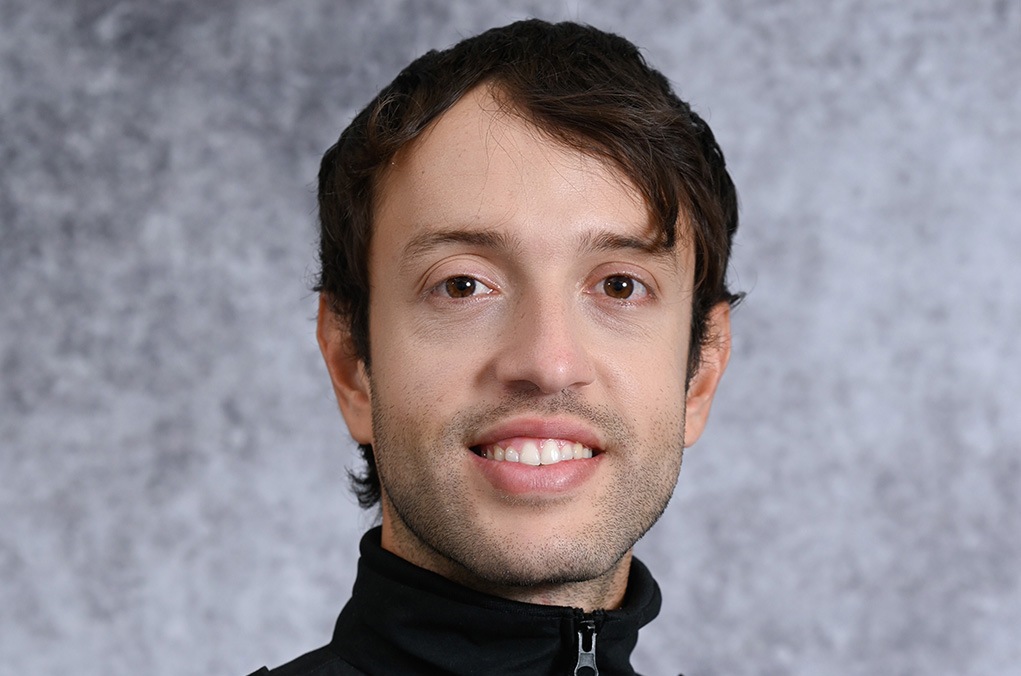
Jose Alejandro Fernandez
Degree Type: Ph.D.
Expected Graduation Date: 2027
School/Department: College of Natural Resources, Department of Forest Biomaterials
Program/Focus: Sustainability, Green Chemistry, Wood-Based Products
Research Project: Understanding the Fundamentals of the Biodegradability of Polymers, Blends and Additives for Nonwoven Applications
Professor/Faculty Advisor: Richard Venditti, Ph.D., NCSU; Joel Pawlak, Ph.D., NCSU
How did you come to have an interest in nonwovens?
After graduating from university in Venezuela, I found a job in a research laboratory. I worked there for four years, and I realized back then that I would like to keep working in the research field after finishing working there. In 2022 the opportunity to do a Ph.D. showed up, and I decided to try it. I had an interview with Dr. Venditti when he told me about working on the NWI project, which sounded very interesting, and I accepted. I found it interesting that the Department of Forest Biomaterials and NWI can work together to help the textile industry to be more sustainable.
Why are your research/findings particularly important/compelling for nonwovens applications?
My research project focuses on biodegradation of fibers made of polylactic acid (PLA) and how other polymers and additives help to biodegrade it. The textile industry generates a large number of wastes, representing an environmental threat. For that matter, new polymer/product alternatives are needed. PLA is a bio-based polymer, and it is attracting attention from textile manufacturers. We are aiming to provide information about how this polymer can be applied in textiles (specifically nonwovens) and how it will biodegrade when blended with other polymers and additives. To do so, we are spinning fibers and performing both thermal and morphological characterization techniques on them. After going through these analyses, biodegradation experiments in different conditions (aqueous, soil and composting) will be applied on the fibers. By means of the CO2 production from the biodegradation experiments, we will correlate the biodegradation percentage to the fibers.
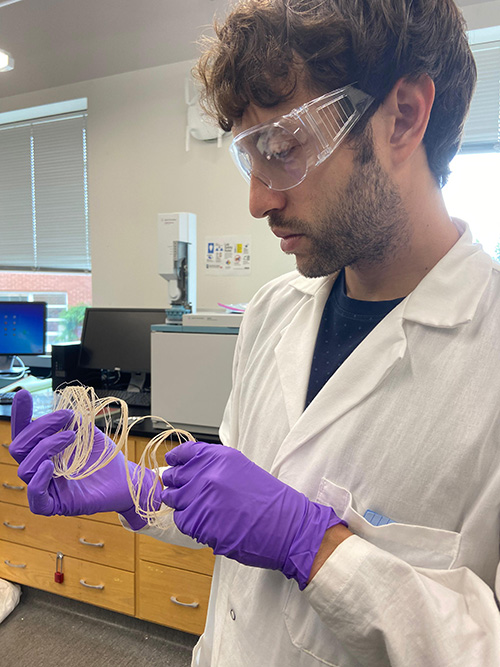
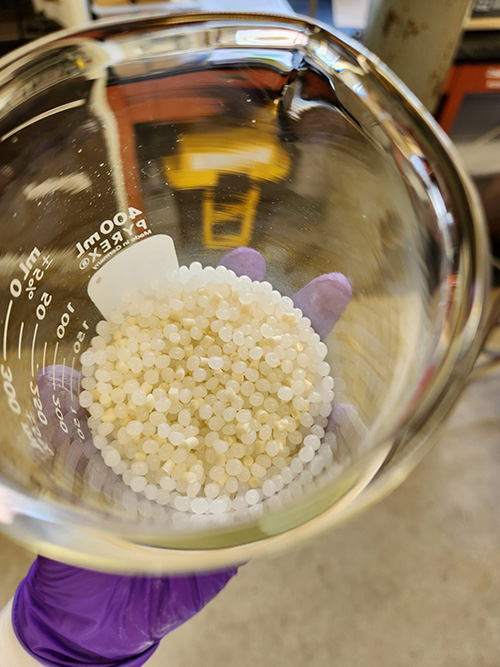
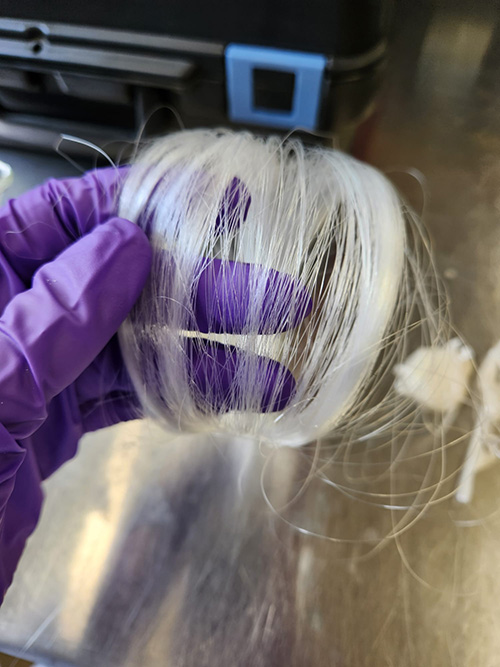
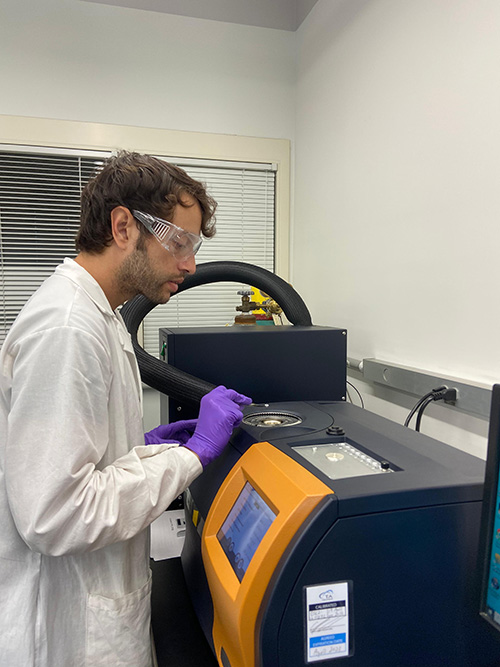
Where do you see yourself upon completion of your studies? Where do you see yourself 5-10 years into the future as you progress in your career?
I’ve been working in academia since graduating from university, and I like it. However, when I did my internships, I also felt attracted by the industry. Now I believe I would like to dedicate more time to working in industry after getting my Ph.D. The chemical and textile industries are two of my main goals for working. Maybe in the future, after getting good experience in industry, I could think about working as a faculty member at a university in Venezuela or elsewhere.
When you are not studying and doing your nonwovens research project, what are your personal interests, hobbies … any activities you would like to highlight?
I love outdoor activities like running and hiking. I’ve run eight half marathons and one marathon to date. In Venezuela (where I come from), I’m a three-time national medalist in racewalking. I try to balance sports and academics because I consider it healthy for all of us to focus our minds on different aspects of life. Not everything has to be work or sport; if we can find a point where we can enjoy a little bit of everything, we will not feel like our life turns around only one thing, which sometimes might be frustrating.
- Categories:
